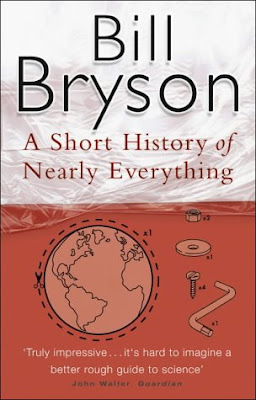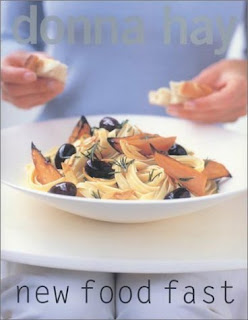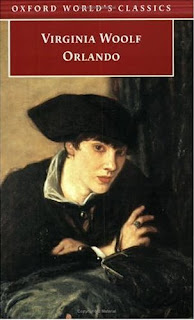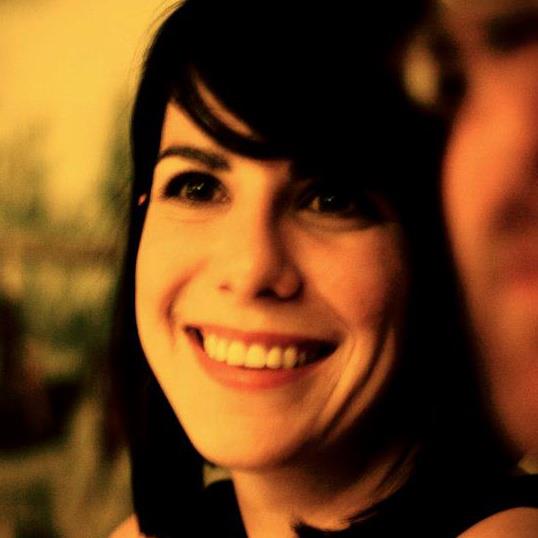
This is one of those books that you can never read too many times, because there's so much in it that you can only absorb so much at once. I think I'm on my third go round. I use it to teach science class in elementary school, and it is phenomenal for that. Why not make science fun? Apparently Bryson agrees with me. No wonder I love him. That and he makes me laugh like a lunatic. Oh Bill, if only you weren't old and hirsute and married...
Bryson has a knack for picking out the most interesting characteristics of the people and things that he's writing about so that you want to read more. For example, Einstein is much more interesting as a genius who was terrible at math and wrote his seminal papers while working as a patent clerk, third class (his petition to become second class was rejected), than just as a genius. When he's writing about the first time that people became seriously concerned that a meteor might crash into the earth, and the realization that a meteor caused the extinction of the dinosaurs, he writes that by the time this notion was proposed by the scientific community (the 1970s), there had already been a movie called Meteor made, starring, in Bryson's words, a few major movie stars, "and a very large rock." Or something to that effect. He cracks me up!
If you read this blog regularly, you know that I ADORE Bill Bryson's books. But don't let that prejudice you. *lol* He really is phenomenal, and even if you have always been terrible at science (I'm okay at biology, so-so at chemistry, and awful at physics), you'll get this book, and learn a lot. And it makes you feel better about yourself as a person, too. One of the most respected astronomers (no, I can't remember his name, so sue me) thought that shadows on the moon were caused by migrating clouds of insects. That's gotta make anyone feel smart.

































